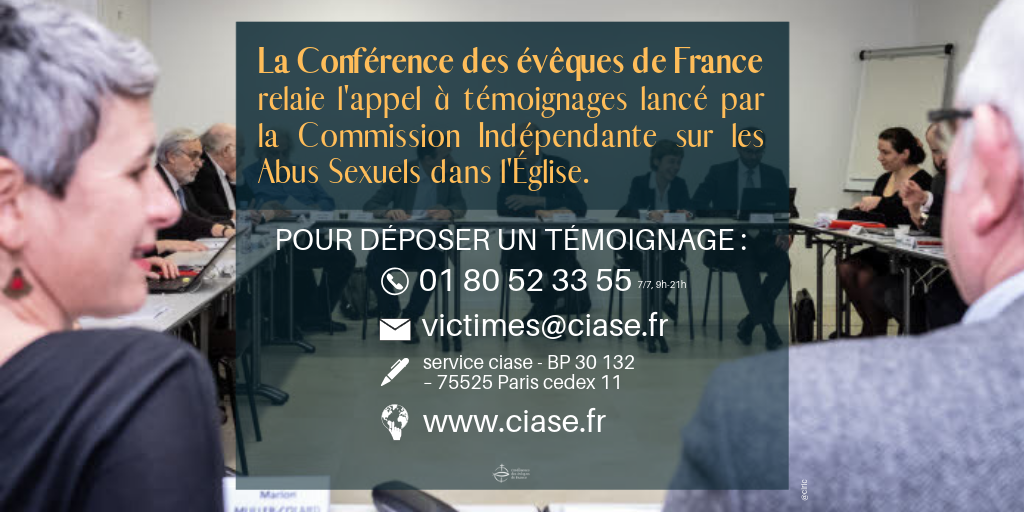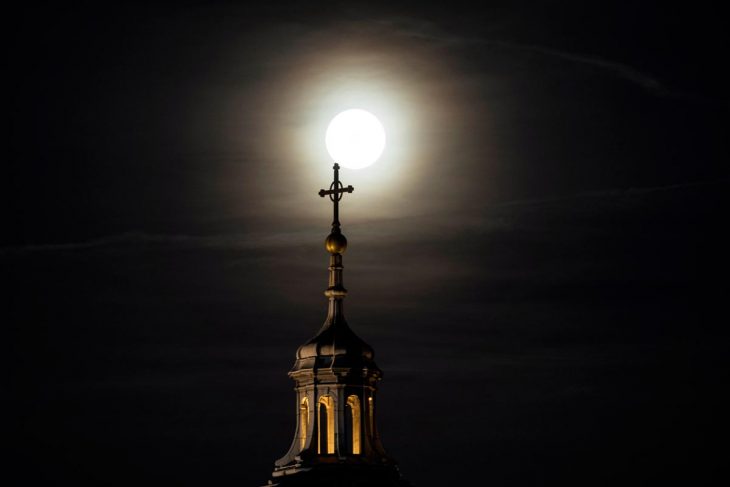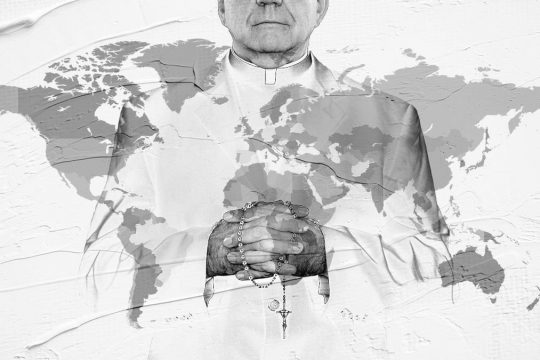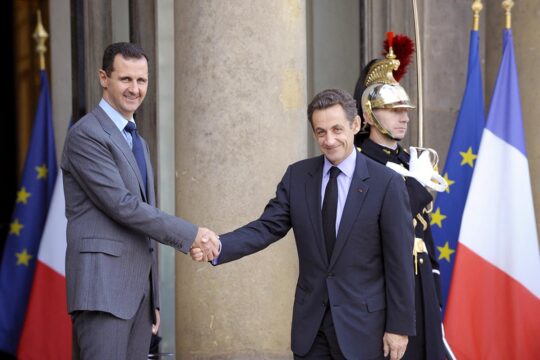“I hope that our work will be a real memorial to the victims of the Church in France and will pave the way for a long work of remembrance,” says Jean-Marc Sauvé. This top French civil servant, who was vice-president of the Council of State from 2006 and 2018, has headed the Independent Commission on Sexual Abuses in the Church (CIASE) since 13 November 2018. Five days earlier, at their plenary gathering in Lourdes, the bishops of France had decided to set up "an independent commission to shed light on the sexual abuse of minors in the Catholic Church since 1950, to understand why these cases have been dealt with the way they have, and to make recommendations, in particular by evaluating the measures taken since the 2000s." Three months later, on 8 February 2019, the Conference of Bishops of France and the Conference of Monks and Nuns of France (CORREF) officially launched the CIASE.
"At last!" came the cry from various sources. Faced with the spread of sexual abuse scandals in the Church around the world, countries have "proceeded in waves", says Commission member Astrid Kaptijn, professor of Canon law at the University of Fribourg theology faculty. At the initiative of the government or of the Catholic Church, commissions have been set up in Ireland (2009), Belgium (2009), the Netherlands (2010), Australia (2012) and Germany (2013).
"In France, the Church took the initiative because it probably felt that if it didn’t, the State would exert pressure,” the commissioner adds. Sexual abuse scandals had reached new heights at the time. The former bishop of Orleans, André Fort, was given an eight-month suspended sentence for failing to denounce a paedophile priest, Pierre de Coye de Castelet, who was sentenced to two years in prison. At the beginning of 2019, the trial also began of Cardinal Philippe Barbarin, Archbishop of Lyon, for not denouncing sexual assaults on minors by the priest Bernard Preynat, who was sentenced to five years in prison.
"The work of French society as a whole"
But what about the independence of such a commission, appointed by the very institutions that it is investigating? Sauvé says he only agreed to set it up once "all the guarantees of independence and impartiality [from the Conference of Bishops of France and CORREF] had been obtained. The commission has a total of 22 members with almost gender parity (12 men and 10 women) from a range of disciplines (practitioners of criminal and Canon law, child welfare, psychology and psychoanalysis, health, education, social work, social science and theological research) and faiths (including non-believers, agnostics and atheists). These commissioners representing different generations (the average age is 57) have committed themselves on a voluntary basis to "shed light on the past in order to draw consequences and restore trust".
"Of course there is still a great deal of conservatism within the Church, but many members are ready and even encourage this rather deep questioning," notes Antoine Garapon, magistrate and member of the Commission, who sees this approach as "the work of French society as a whole". Father Pierre Vignon, while pleased with this step forward, hopes "that the recommendations of this Commission will be scrutinized by the whole Church", which is at the origin of "many abuses". This priest from the diocese of Valencia, retired to the Vercors, has been working for more than twenty years alongside those he calls "the victims of the Church". In August 2018, he launched a petition calling for the resignation of Cardinal Barbarin. COREFF general secretary Anne-Marie Grapton says the organization wants "above all to understand what societal and institutional mechanisms have led to silence. We are eagerly awaiting the recommendations, which will be taken into account as much as possible".
Establishing the facts
The Commission is divided into four working groups and meets in plenary once a month (by videoconference since the Covid 19 confinement). It hears experts and witnesses, analyses judicial and press resources from the past 70 years, as well as archives in almost all the structures of the Church - to date, 600 people questioned in 115 dioceses and 400 congregations. "The immense task of the Commission is to make a quantitative and qualitative inventory of the sexual abuses of the Church. Our mission is not to denounce persons but to establish facts," Sauvé stresses repeatedly.

5,000 phone calls
The Commission’s other task is to listen to the many victims. On 3 June 2019, it launched a call for testimonies to all the victims of the Church since 1950, in addition to hearings conducted by the commissioners in France and overseas. "Most of the callers are giving testimony for the first time, often 30 or 40 years after the event,” says Olivia Mons, spokesperson for a federation of associations, France Victimes, which was asked to take on this heavy task. “We don't record anything, we don't transcribe anything. Four listeners have been hired to gather the stories with as much kindness and empathy as possible." At the end of the interview, callers are encouraged to fill out an anonymous questionnaire online with details about the abuse. This data is then processed by a survey company. To date, France Victimes has received 5,000 calls and 1,500 questionnaires. According to provisional data provided to Justice Info by the Commission, 62.7% of callers are men, and 88% speak of a first abuse when they were minors (two-thirds were between 6 and 15 years old). More than 70% of victims are over 50, and the remainder are between 30 and 49 years of age. The date of the events is for about 6% before 1950, for more than half of them between 1950 and 1970, for a third between 1970 and 1990, and for 13.5% between 1990 and 2019, taking into account that provisional figures for the last decade would show an upsurge compared to the previous one.
The Commission has only an advisory role. However, "we will be obliged to name the acts, what is sexual assault or more serious acts, such as rape," says Sauvé, who says he is amazed and upset by the extent and seriousness of the testimonies received. Recommendations are given to victims on crimes that have no statutory limitation: "Article 434-1 and the following ones of the Penal Code oblige us, as any person who is aware of them, to denounce such crimes, in particular ill-treatment or sexual assault of minors," he says.
So, what reparations should be proposed when the victims' expectations are very diverse? “There are many who want public recognition," says psychologist Carole Damiani, who is director of the association Paris Aid to Victims and member of the Commission, "but often they have heard about it without knowing what it means in practice. The same goes for criminal law. They often think that there is no alternative. This is why we must work on alternatives, knowing that given the psychological, social and legal complexity of these sexual violence experiences, there will never be a single answer.” Kaptijn speaks of "zero tolerance" among some victims who see the only way as having "the perpetrator dismissed from the clergy”. François Devaux, the founder in 2015 of the association Parole Libérée, which was behind the revelations on abuse by Father Preynat, goes further. "We need it simply never to happen!” he says. “And so we need fundamental reform of the Church, whether it be on the subject of dogma, the place of women or sexuality." But, he says, "it is difficult to know what to expect, because the suffering is irreparable”.
The Commissioners remain cautious. "I am struck by how much sexual abuse by a cleric causes inner devastation,” says Garapon, who with three other commissioners is in charge of the Victims, Liability and Reparations working group. “I expected that victims would totally reject the Church and the faith. And yet it's more complicated than that."
Pushing the boundaries of the law?
Faced with the scale of the phenomenon, in France and elsewhere, legal experts are wondering about the best approach. So-called restorative justice consists of bringing together the victim and the perpetrator to engage in dialogue. Olivia Mons believes that this is a possibility, provided that a broad reflection is undertaken within the Church. "We know the victim, but is the perpetrator a representative of the institution who knew but did nothing?”
Jean-Pierre Massias, professor of public law at the University of Pau and president of the Francophone Institute for Justice and Democracy, says the Commission "uses the techniques and procedures of transitional justice", which is itself at a turning point. "It has long been used to deal with the transition from dictatorship to democracy or from war to peace. But little by little, we see that the tools of transitional justice are being used by countries to consolidate their democracy.” And he questions the current limits in terms of judicial definitions. "For example, sexual violence in the Catholic Church is not named as a 'crime against humanity', but perhaps the law needs to evolve.”
In 2011, victims of sexual abuse belonging to SNAP (Survivors Network of the Abused by Priests) filed the first communication to the International Criminal Court (ICC) accusing Pope Benedict XVI and other top Vatican officials of “crimes against humanity” for having kept systematically silent about sexual crimes by clergy around the world. The ICC has not yet responded.
The Commission is due to submit its report at the end of 2020 to the Conference of Bishops of France and the Conference of Monks and Nuns of France. The report will be made public.








